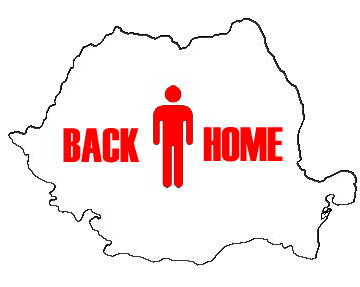Quick notes on travel
 This was by far my easiest trip ever as I only had to change flights once–in Amsterdam. I’ve only been on NWA/KLM in my trips to and from Romania and they’ve never been a problem. Sometimes they get incredibly attached to their customers as they did last night when they announced they wouldn’t be serving peanuts on the DC-Amsterdam route because someone on board was heavily allergic to peanuts and peanut oil.
This was by far my easiest trip ever as I only had to change flights once–in Amsterdam. I’ve only been on NWA/KLM in my trips to and from Romania and they’ve never been a problem. Sometimes they get incredibly attached to their customers as they did last night when they announced they wouldn’t be serving peanuts on the DC-Amsterdam route because someone on board was heavily allergic to peanuts and peanut oil.
A group of passengers seated by the lavatory soon established the Angry Flyers Task Force and spent the duration of the flight beating up passengers who looked like they would have been responsible for the peanut-less flight hours.
Three sings that Romanians are on your flight (observed from Amsterdam to Bucharest):
1. There is no such thing as order when they board a flight. Many Romanians have been diagnosed with “flight instructions deafness.” For example: when staff calls for families traveling with small children and people needing assistance to board, a true Romanian hears: “You should all have to try to board the plane simultaneously.”
2. When the plane is on the runway ready to take off, an older woman will stand up and ask a young man to fish something out of her bag. This will scare the living daylights out of the flight attendants, who will rush down the aisle screaming: “SIT DOWN! SIT DOWN! WE ARE ABOUT TO TAKE OFF! IT’S VERY DANGEROUS!” The woman will take her sweet time and shrug off the naive concerns of a foreigner who is only there to wheel the drinks down the aisle, baby.
3. I traveled a lot in the US for my job over the past year. Experience has shown me that more than 80 percent of the seat buckles pop after the aircraft has stopped at the gate and the captain has turned the seat belt sign off. When my flight landed in Bucharest yesterday, almost half the people on the flight unbuckled the moment the plane touched down. Romanians don’t like to be tied down and told what to do. We always know better.
Note: All of the above are part of the larger paradigm of Romanians and Rules, a subject I will surely return to over the next few months. Romanians and rules just don’t go well together. A Romanian thinks of a rule (or a law for that matter) as a moronic social convention that one should try to break because the only reason they were enacted was not to help, but to hinder your movements and freedoms. Airport behavior is one. Driving is another popular one. There is nothing like drivers passing other drivers at 100 km/hour (60 miles/hour) while driving through the main streets of a village. The law says you can’t be over 50 km/hour in a village. But the law hinders your movements as a driver and the people who follow the law and the rules of the road are weak human beings because they have not been able to take destiny in their own hands. Picture this: The road narrows to one lane because of construction. Most drivers file orderly and wait for the light. But many just drive past because to them waiting your turn is just a stupid rule and if you can’t slide in front of everyone else–well, than you are a failure and you have balls the signs of those peanuts the KLM passenger was allergic to.


 Earlier that day, a larger march packed
Earlier that day, a larger march packed  Not that long ago, the New York Times ran a self-referential (and self-reverential) meta story about the portrayal of the newspaper in movies. It was the kind of self-love you profess on the back page of your math-class notebook, where the spelling of your name is adorned with cute flowers and stars, if not smiling hearts and confetti.
Not that long ago, the New York Times ran a self-referential (and self-reverential) meta story about the portrayal of the newspaper in movies. It was the kind of self-love you profess on the back page of your math-class notebook, where the spelling of your name is adorned with cute flowers and stars, if not smiling hearts and confetti.